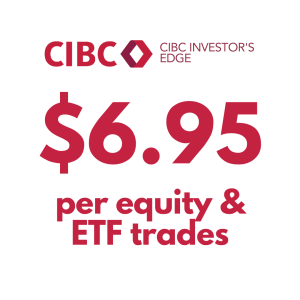
At a high level, tax efficiency is the process of paying the least amount of tax possible without breaking any laws. Obviously, we are not advising you to commit tax evasion! Much of this boils down to understanding how taxation works, then acting in a way that minimizes your tax burden. Given that taxes are quite high in Canada, it’s likely that most individuals and families are interested in improving their tax efficiency. Continue reading to learn more about tax efficiency in Canada and how you can apply it to your own personal finances. Furthermore, you can enhance your tax efficiency at any age, which we’ll explore below as well.

Table of contents
What is Tax Efficiency?
Tax efficiency is the culmination of processes and behaviours executed to pay the least amount of tax while still maintaining compliance with the law. A decision is tax efficient if the tax obligation arising from it is less than an alternative decision.
Naturally, we all want to reduce our tax burden. However, tax efficiency is not everything. Most personal finance decisions have other considerations beyond taxes that can be both quantitative and qualitative. Sometimes other factors outweigh the tax efficiency considerations. It’s important to keep this in mind because personal finance and tax efficiency decisions aren’t always easy to navigate!
What does being tax-efficient mean?
Being tax efficient involves a series of processes and behaviours that reduces your tax obligation. In other words, tax efficiency is about making decisions on a day-to-day basis that lowers your tax liability. Since financial circumstances are unique for everyone, tax efficiency can look different from person to person. While there are some tried and tested methods of tax efficiency, you will have to spend time understanding tax laws and how it applies to you. From there, you can customize your own tax efficient strategies to reduce your tax liability.
Related Reading: Tips on How to Save Money
CIBC Investor’s Line Offer
Up to $6.95 per online stock or ETF trade. Plus, there’s no minimum account balance.
How do you calculate tax efficiency?
Tax efficiency calculations are a culmination of understanding tax law and mathematical calculations. Through both these tactics you can remain tax efficient at any age.
Canadians who are financially literate understand the basic principles of tax and can incorporate that into their day to day decision making. For instance, capital gains tax only arises when an asset is sold at a profit. But if you never sell an asset, no tax obligation arises. So, a financially literate Canadian wouldn’t invest unless they’re ready to part with the funds for a long period of time. Then, they’d hold onto the investment for as long as possible to remain tax efficient. For this reason, it’s important to stay up to date on tax laws in Canada and change your financial behaviour accordingly.
In some instances, you might be faced with a financial decision that requires you to estimate tax through a calculation. As an example, you might be planning to sell your home or are considering quitting your job to become fully self-employed. Furthermore, you might be trying to figure out which option is the cheapest tax wise. To calculate the tax burden of certain financial decisions, read legislation and examples on the Canada Revenue Agency’s website. Alternatively, consult with a financial advisor to help you with the tax estimates. Unfortunately, there are simply too many potential tax calculations to cover in this article!
CIBC Investor’s Line Offer
Up to $6.95 per online stock or ETF trade. Plus, there’s no minimum account balance.
What is an example of tax efficiency?
Bridget is self-employed as a graphic designer and she earns the majority of her income working from home. Her home office is in her basement. Tragically, Bridget’s basement flooded overnight due to a burst pipe from the cold Canadian winters. Unfortunately, Bridget doesn’t have an emergency fund, but she needs money to cover the cost of this urgent repair. Bridget has the following options:
- Option 1: Withdraw money from her RRSP
- Option 2: Obtain a loan from her bank
- Option 3: Obtain a loan from her parents
Let’s consider the tax efficiency of each option. In terms of similarities, Bridget can deduct the cost of the repair against her self-employment income since her home office is located in the basement. This is true amongst all three options. Now, let’s look at the differences in tax efficiency.
First up, Option 1 is the least tax efficient. If Bridget withdraws money from her RRSP, she will have to declare it as income on her tax return and pay additional tax. She may face a withholding tax on her withdrawal as well. In addition, the RRSP room won’t be available to her anymore.
Next up is Option 2. Since the loan would be obtained to cover a business expense, the interest incurred from the loan is tax deductible. However, Bridget’s credit score may be impacted by the initial loan application or if she fails to make a payment on time and in full.
Finally, Option 3 poses no tax advantages or disadvantages. Loaned money is not considered taxable income in Canada. In addition, Bridget’s parents won’t charge interest on the loan. They only request she repays it within a year. Since there’s no income or interest attached to this option, it has no tax impact.
Which option is the most tax efficient?
Based on this analysis, the most tax efficient of all the choices is Option 2. This is because it will result in the lowest taxable income for Bridget, and therefore, the lowest tax obligation. Under Option 2, Bridget won’t have to claim any additional income, but she can deduct the interest from the loan.
But this is where it’s important to remember that tax efficiency isn’t everything. Technically, the best choice is Option 3 because Bridget won’t have to worry about her credit score or managing debt with a financial institution.
Related Reading: 4 Types of Income
How can I be tax-efficient in Canada?
There are a number of ways to be tax efficient in Canada. Let’s take a look at some tips and tricks below.
- File taxes on time. Whether you have a tax refund or liability, filing taxes on time helps you maintain tax efficiency. If you have a refund, it’s best to get that money now rather than later. And if you have a tax liability, paying on time will help you to avoid penalties and interest.
- Record keeping and documentation. Any paperwork related to your financial affairs should be kept safe and organized. This will help you optimize your tax returns because you have all the information at your disposal. It’s more challenging to maintain tax efficiency when you’re missing financial records and documentation. How will you know what to record as income and what to deduct?
- Utilize tax sheltered tools. RRSPs, TFSAs, RESPs, RDSPs, and other registered accounts have various tax advantages. Be sure to use all of the registered accounts you’re eligible for.
- Optimize deductions and credits. There are a lot of deductions and tax credits available to Canadians, but they’re not always used. For instance, home office expenses, RRSP tax deduction, donations, moving costs and much more can be deducted to reduce your tax liability. In addition, by knowing what deductions and credits are available to you, opportunities to minimize tax will become more obvious in everyday life.
- Avoid selling investments. Capital gains tax only arises when you sell an investment, such as stocks or real estate. If you never sell them, then you won’t incur tax! Of course, if you do sell an investment at a profit, you can always reduce or eliminate the capital gain through tax loss harvesting.
Maintaining Tax Efficiency at Every Age
Tax efficiency is important at every age, regardless of income, financial status or where you live. Below are some tips by age group. Keep in mind that everyone is on their own path in life, but we’ve compiled the tips by typical milestones at each age.
| Twenties | – Use education tax deductions and credits if you’re pursuing secondary education – Take the time to understand taxation in Canada to build a foundation of knowledge for your future years – Open a TFSA and RRSP (plus any other registered accounts you’re eligible for) and begin making contributions |
| Thirties | – As you begin making investments, take the time to understand how capital gains tax works in Canada – With advancements in your career, you may earn a higher income, be sure to consider tax brackets to understand how your tax liability will increase – Understand the different tax implications of employment income, self employment income and business income depending on your career path – If you start a family, claim tax credits and deductions for children and caregivers – Continue contributing to RRSPs, TFSAs and other registered accounts |
| Forties & Fifties | – Start retirement planning, if you haven’t already, and consider the tax implications of saving and preparing for retirement – Optimize tax credits and deductions since your income may be higher at this age – Continue contributing to RRSPs, TFSAs and other registered accounts |
| Sixties | – Finalize retirement plans, including consideration of tax efficient retirement withdrawal strategies – If you choose to downsize or sell your home, consider rules surrounding capital gains and the principal residence exemption – Begin claiming government benefits, such as CPP, GIS and OAS, and understanding the tax implications of each |
| Seventies & Beyond | – Prepare for the end of your life and passing on your legacy, including creating and updating a will, naming an executor, estate planning and building generational wealth – Gift money and assets to your loved ones before you pass to avoid probate and taxation upon your death – Try to stay in the lowest tax bracket and live below your means to reduce your obligation |
Related Reading: What is the clawback for OAS?
Pros and Cons of Tax Efficiency
| Pros | Cons |
| Reduce tax burden throughout your life | Focusing solely on tax excludes other important aspects of financial decision making |
| Improve overall financial situation | Can be difficult to achieve tax efficiency on your own |
| Increase financial literacy | Trial and error may be necessary without an expert’s help |
How can tax efficiency be improved?
It is possible to improve your tax efficiency at any age. It all begins with educating yourself about tax laws and then applying those concepts to your daily lifestyle. At each stage of life, you may incur different tax hurdles. For instance, a 19 year old likely isn’t ready to consider the tax implications of a property purchase, but is probably ready to tackle tax credits and deductions surrounding education. Whereas a 60 year old is ready to consider tax implications related to retirement, but a 30 year old may be focusing on raising their kids and the related credits and deductions. Tax efficiency is relative and a continuous learning journey. Get started today with the help of a financial advisor!
Read More: Tax Efficient Investing Canada

